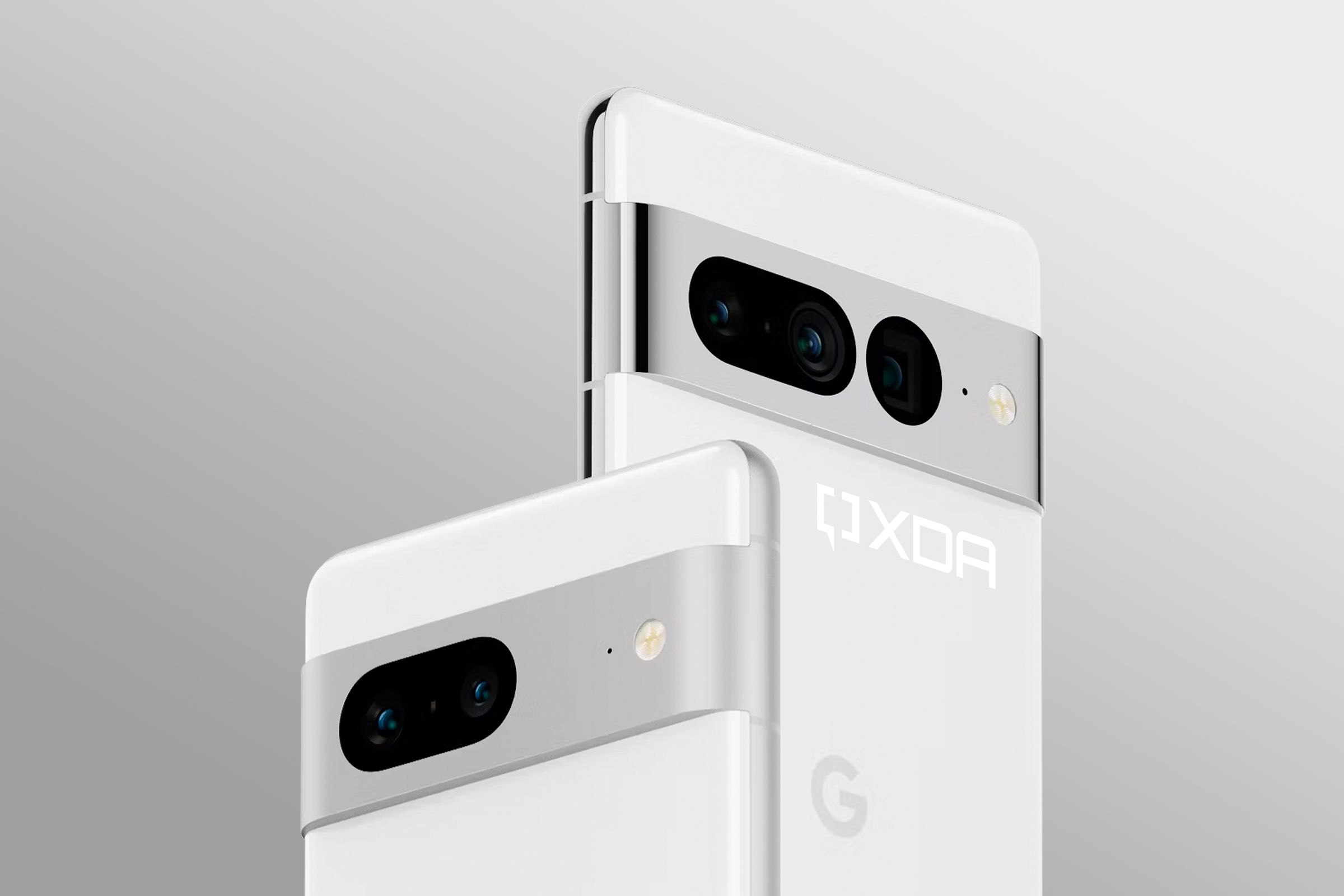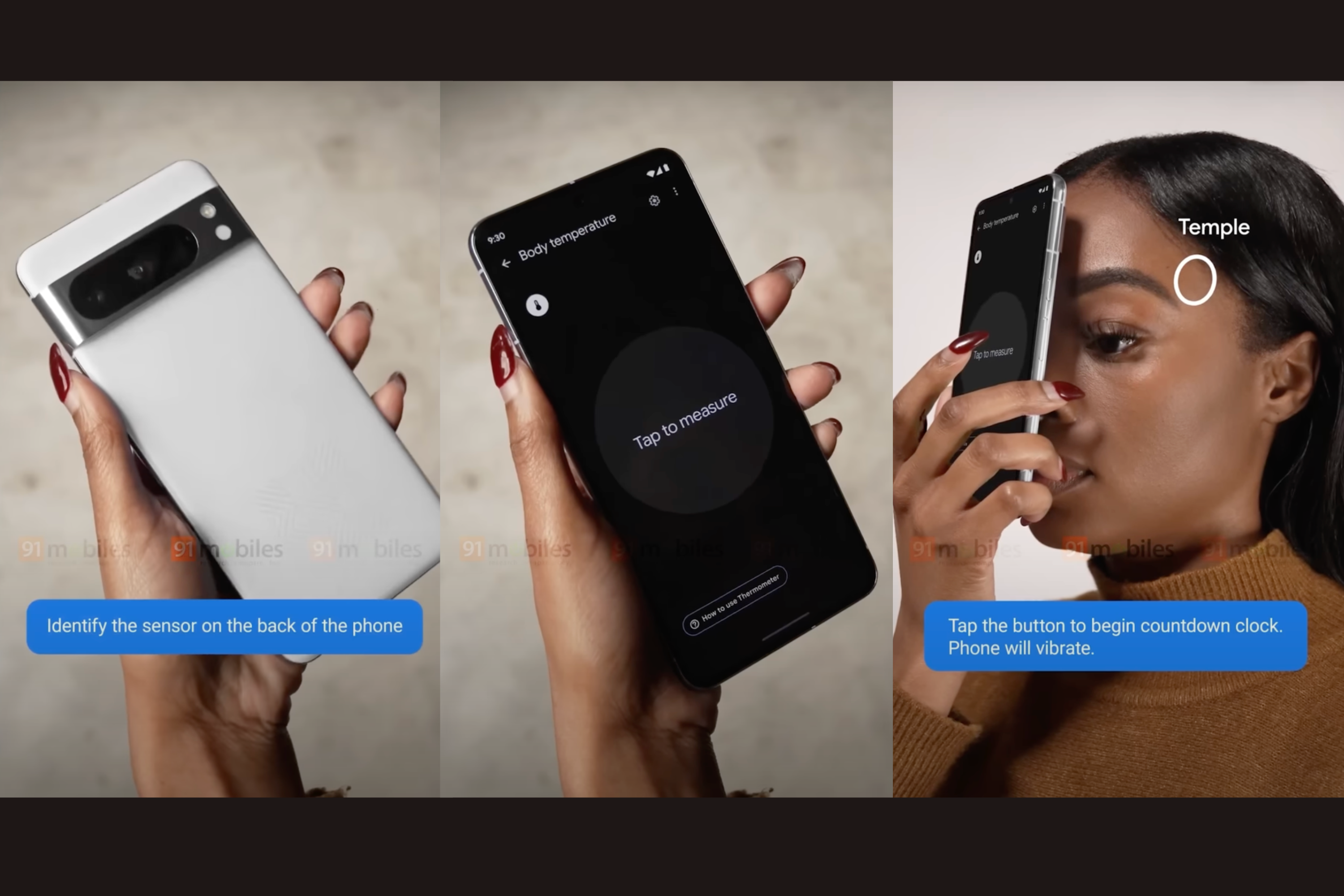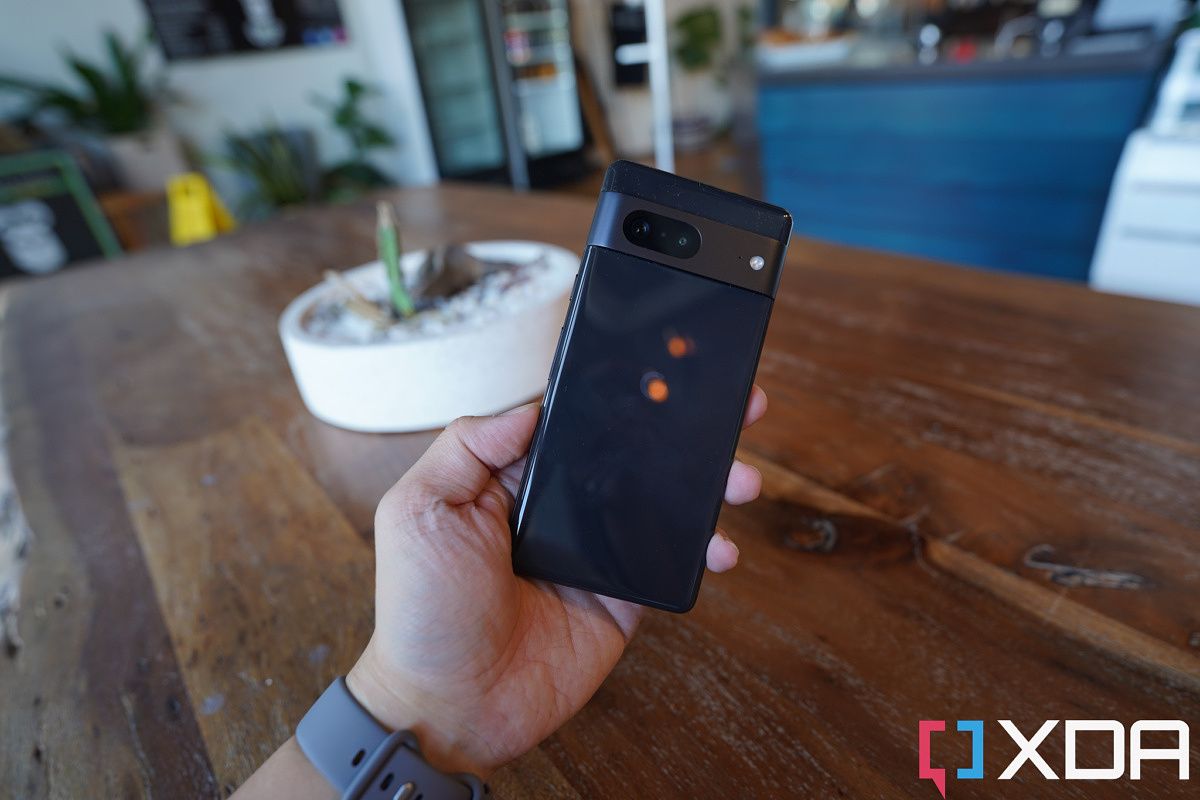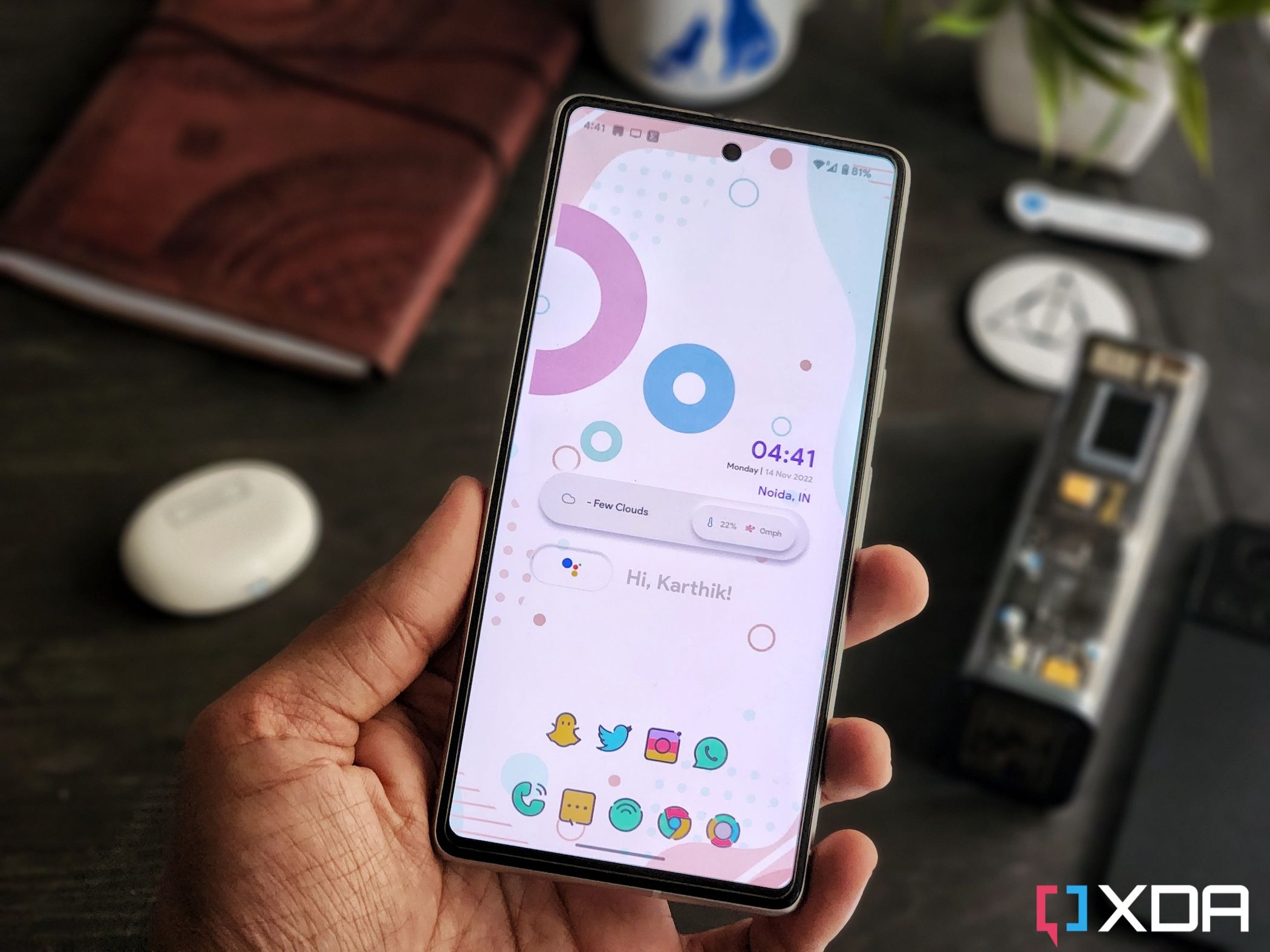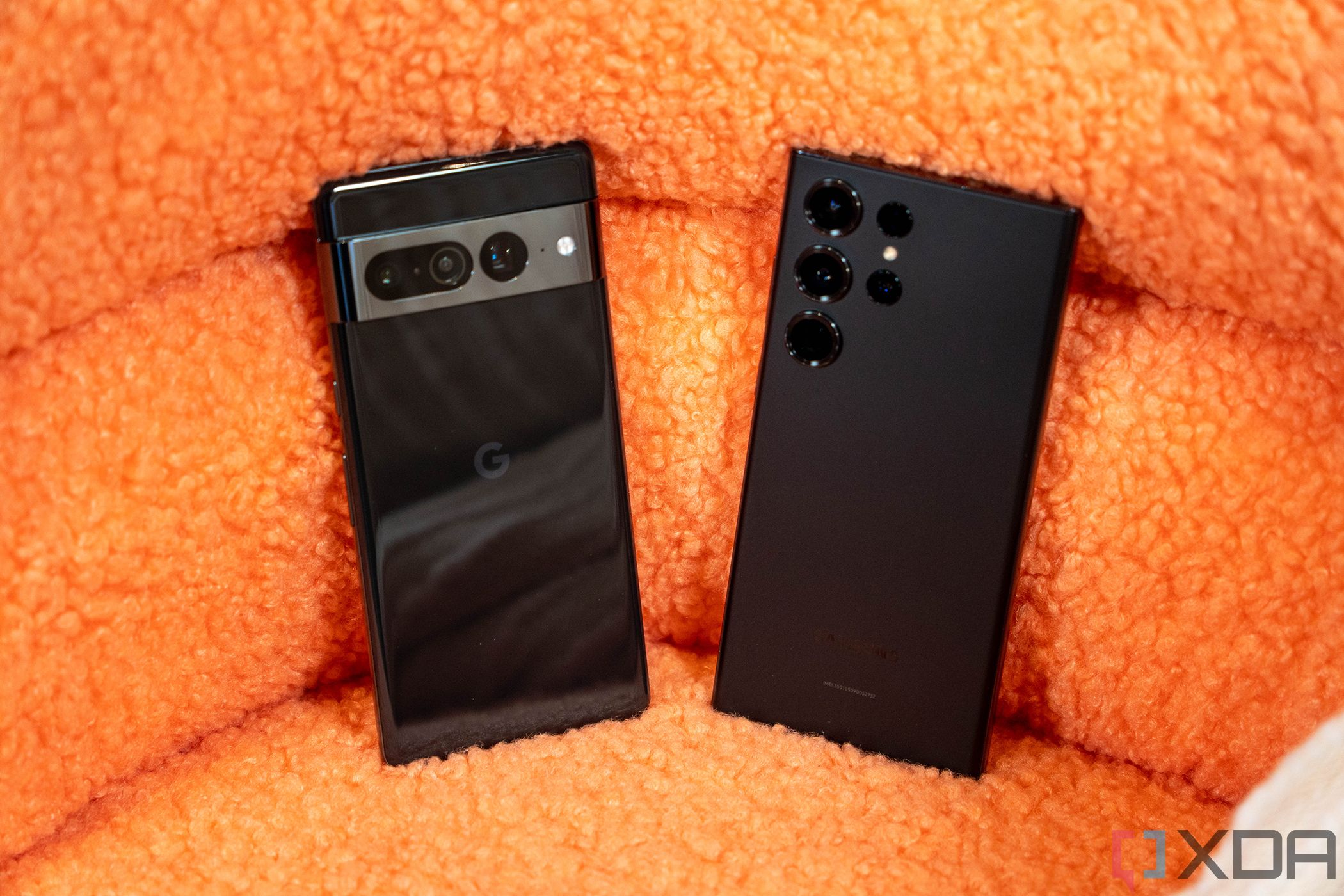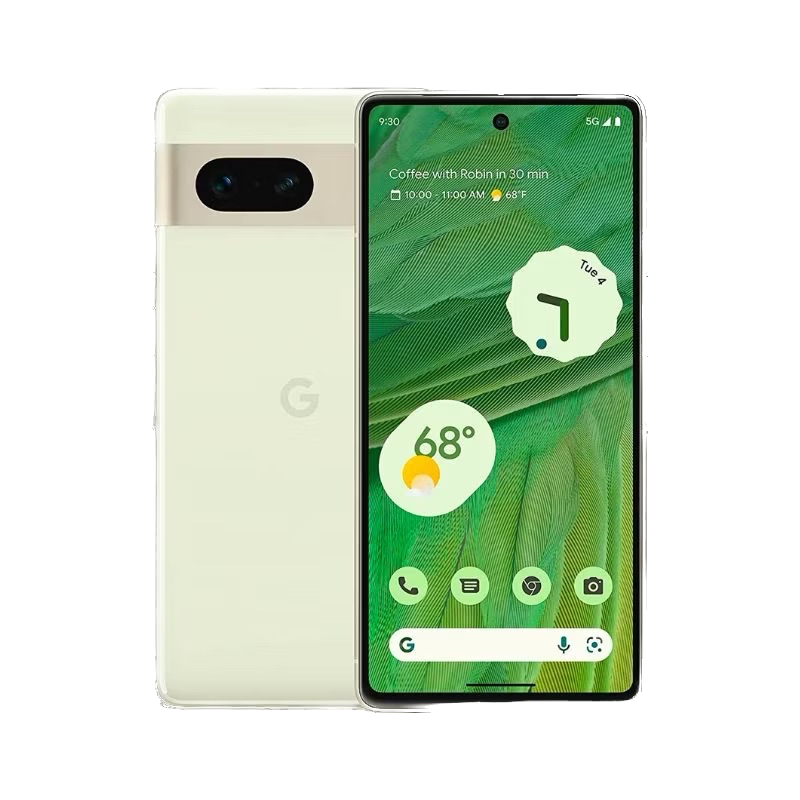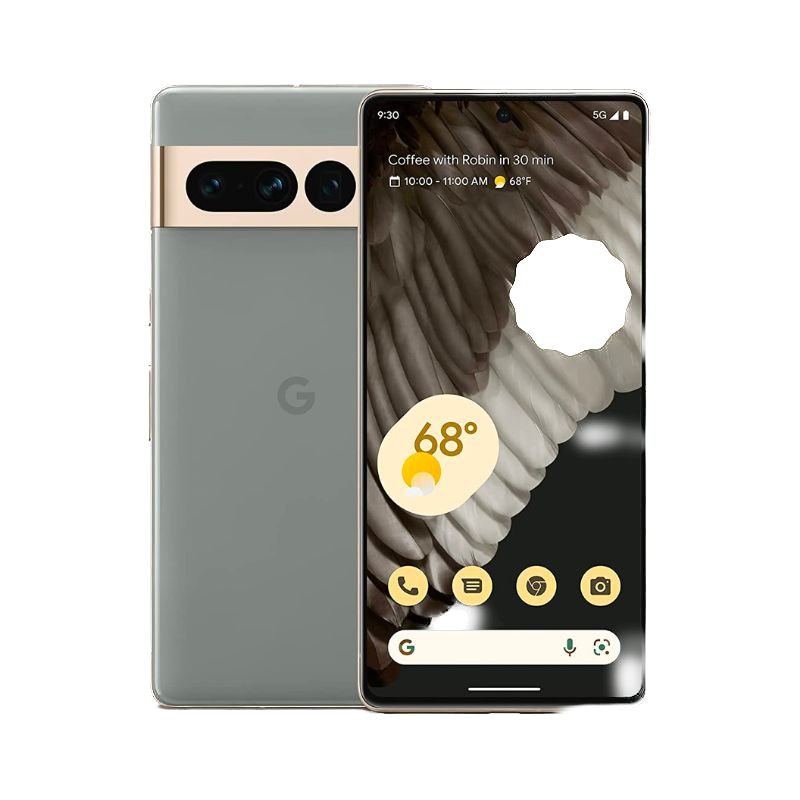Quick Links
The Pixel 7 and the Pixel 7 Pro have been out for a while now, meaning it's time to shift our focus to their successors in the Pixel 8 series. We're still a few months away from the expected unveiling of the new Pixel phones in October, but the rumors mills have already churned out a substantial amount of details that are hard to ignore. As somebody who often comes back to the Pixel 7 from other Android phones, I can't wait to see what Google has in store for us with its next release. I'm not alone in the Pixel 8 hype train, which is why I've decided to collect all the available rumors, leaks, and other information in one place.
Google Pixel 8 series: Price and availability
Google has yet to confirm the Pixel 8 series' arrival, so nothing is set in stone when it comes to pricing and availability. We can, however, make a few educated guesses based on the history of Pixel phones. If history is something to go by, then I expect the Pixel 8 and the Pixel 8 Pro to carry $599 and $899 price tags, respectively. I wouldn't be surprised to see a small price hike due to inflation and other external factors, but I don't see them going down in price.
Both the Pixel 6 and Pixel 7 series made their debut in October, so it's fair to assume the Pixel 8 will release in October 2023. Google didn't give us a Pixel 8 teaser at the Google I/O 2023 keynote this year, so I wonder if there's been some change of plans. But we haven't heard any rumors suggesting otherwise, so I am going to mark a tentative date in the month of October for a potential Google hardware event.
We may not have an availability date for the Pixel 8 series at the moment, but sources claim that the Pixel 8 will be available in Haze, Jade, Licorice, Peony, and the Pixel 8 Pro in Jade, Licorice, Porcelain, and Sky finishes when they arrive later this year. You can check out the leaked wallpapers to get an idea of the colors for the upcoming Pixel phones.
Google Pixel 8 series: Design and specifications
The Pixel 7 and Pixel 7 Pro looked very similar to their predecessors, and it looks like Google is planning to keep it simple once again with an iterative design update. We already have some leaked renders that show a very familiar design for these upcoming phones.
The leaked renders show the Pixel 8 in white and the Pixel 8 Pro in black. They both look very similar to the current crop of Pixel phones with the distinctive camera bar on the back. However, there are some interesting changes this time around, especially on the Pixel 8 Pro. The rear camera module looks slightly different from the one on the Pixel 7 Pro. All three cameras appear to be encased in one glass pill, as opposed to the pill and circle design on the 7 Pro. The additional sensor that you see under the camera flash on the Pixel 8 Pro renders is said to be an IR thermometer. It seems to be exclusive to the Pixel 8 Pro, and it looks like you could also use it to measure the temperature of objects.
The Pixel 8 Pro appears to have a flat panel on the front instead of the curved one currently on the 7 Pro, and it'll be interesting to see how it looks in the real world. The leaked dimensions of the Pixel 8 Pro — 162.6 x 76.5 x 8.7mm — tell us that it will be a hair thinner than the current model. The Pixel 8 render, on the other hand, looks identical to the Pixel 7, but its leaked dimensions are smaller than the Pixel 7 — 150.5 x 70.8 x 8.9mm vs. the Pixel 7's 155.6 x 73.2 x 8.7mm. Ross Young, a reputed display analyst, also added more fuel to this speculation by leaking some information about the Pixel 8's display size.
According to Young, the Pixel 8 will have a 6.16-inch OLED panel, down from the 6.32-inch panel on the Pixel 7. The Pixel 8 Pro is said to retain the same display size, so you can expect the Pro model to have the same footprint as the current Pixel 7 Pro model overall. If this ends up being accurate, we'll have a more compact Pixel flagship this year. It's not as short or thin as the Galaxy S23, but it would still make a huge difference, especially when you compare it side-by-side with the Pixel 7.
As for the chipset, it looks like the Pixel 8 series will receive the next-generation Tensor chip, codenamed "Zuma." Android Authority's exclusive reporting suggests that the new Tensor G3 chip will feature a Cortex-X3 (3.05GHz), four Cortex-A715 cores (2.45GHz), and four Cortex-A510 cores (2.15GHz). XDA's Adam Conway thinks the Tensor G3 could be a major improvement over its predecessor, and I suggest catching his thoughts on the leaked Tensor G3 details to learn more details.
We've also learned about the cameras on the upcoming Pixel phones, and it looks like Google wants to make the Pro model stand out further in the camera department. The leaked camera details reveal that the Pixel 8 Pro model will get a new primary and an ultrawide sensor. The jump from Isocell GN1 primary camera to the newer Isocell GN2 is a big one, but I am more excited about the switch from the dated 12MP Sony IMX386 ultrawide sensor to the 64MP Sony IMX787 sensor found on the Pixel 7a. The Pro model is also said to get a new time-of-flight (ToF) sensor for improved autofocus, whereas the regular Pixel 8 is only tipped to get the Isocell GN2 primary camera upgrade.
Google Pixel 8 series: Wishlist
That's all the information we have about the Pixel 8 series for now, but I am hoping to see more changes, like the ones below.
Faster charging speeds, please!
Both Pixel 7 and Pixel 7 Pro trail behind the competition in the charging department. The Pixel 7, in case you're wondering, supports 20W wired charging, while the Pixel 7 Pro tops out at 23W. These charging speeds may look decent for an iPhone user, but they're painfully slow when you compare them with the charging speeds offered by other Android flagships from the likes of OnePlus. The newly launched OnePlus 11 can fully top up the battery in just 25 minutes. Expecting 65W or 80W charging speeds from the next-generation Pixel phones would be wishful thinking, but I'd like them to start somewhere and at least compete with Samsung's 45W charging speeds. Having to wait for almost two hours for your phone to charge is a bit of a hard pill to swallow.
Variable refresh rates for all models
I am assuming most people know by now that the Pixel 7 Pro has a 120Hz screen, whereas the standard Pixel 7 is stuck at 90Hz. The latter is still an uptick from the 60Hz displays we've seen in older devices, and you'll likely never spot a difference between 90Hz and 120Hz unless you use them side by side, but did you know that only the Pixel 7 Pro's display supports variable refresh rates? That's right, only the Pro model benefits from an LTPO display with a variable refresh rate (VRR) support that throttles down to only output the necessary amount of frames. That, in conjunction with the more efficient Tensor G2 chip, pulls a lot of weight to significantly reduce power consumption.
While the Pixel 7 Pro can crawl down to 10Hz while idling, the Pixel 7's OLED panel can only switch between 60Hz and 90Hz. It would be nice if all models in the Pixel 8 lineup would not only have a 120Hz display but also support variable refresh rates. It makes sense to reserve some features for the Pro model, but I'd rather have these limitations only on the more affordable Pixel A-series phones and not see them trickle down to the flagships.
A more reliable fingerprint scanner?
Every time I switch to a different phone from the Pixel 7, the only thing I don't miss is its rather slow and unreliable fingerprint scanner. My time with the Pixel 7's fingerprint scanner has been so challenging that I switched to facial recognition even though it's not as secure. Not all Pixel 7 units appear to be plagued by a sluggish fingerprint sensor, but I know I am not alone when I say using it is not an enjoyable experience.
I've seen countless threads on Reddit discussing this issue and trying to figure out alternate ways, like registering your fingers twice to make it more reliable. It would be nice to see Google swapping out the optical fingerprint scanners with ultrasonic ones for the Pixel 8 lineup. The ultrasonic sensor on the Galaxy S23, for instance, blows the Pixel 7's scanner out of the water, and I don't see myself getting used to a slower sensor again after having used a more reliable one.
Longer support with more updates
I find it mildly unsettling to write about wanting better Android support on a phone made by Google, but we're living in times when other manufacturers offer longer support for their phones with more updates. Samsung was the first to win its users by offering longer software support. The company, in case you're wondering, has promised four major Android OS updates and up to five years of security updates for its flagship phones. OnePlus has also made a similar promise to deliver more updates to "some" of its phones, so it's safe to assume the OnePlus 11 is first in line for that. This puts Google in a tough spot as the current-generation Pixel phones are only promised three Android OS updates and up to four years' worth of security updates.
None of these come close to the number of years of support Apple offers for its devices, but it would be nice to see Google stepping things up with more updates for its phones. And the fact that it's now using bespoke Tensor chips for its phone should make it that much easier to tailor updates. This isn't necessarily a deal-breaker for many, but having better software updates is good for the longevity of the device.
We're still months away from getting our hands on the new Pixel phones. If you don't want to wait that long and want to buy a new phone right now, consider picking up a Pixel 7 or a Pixel 7 Pro. They're both excellent phones that'll serve you well for many years to come. They're also frequently discounted across all the retailers in the U.S., so you might find a good deal in our Pixel 7 deals post.
-
Google Pixel 7
$400 $599 Save $199The Google Pixel 7 is a refinement of the already excellent Pixel 6, making for a very polished phone with a great camera.
-
Google Pixel 7 Pro
$810 $899 Save $89The Pixel 7 Pro is Google's best phone ever, with a refined, premium design and Google's second-generation silicon — plus awesome cameras, as usual.

